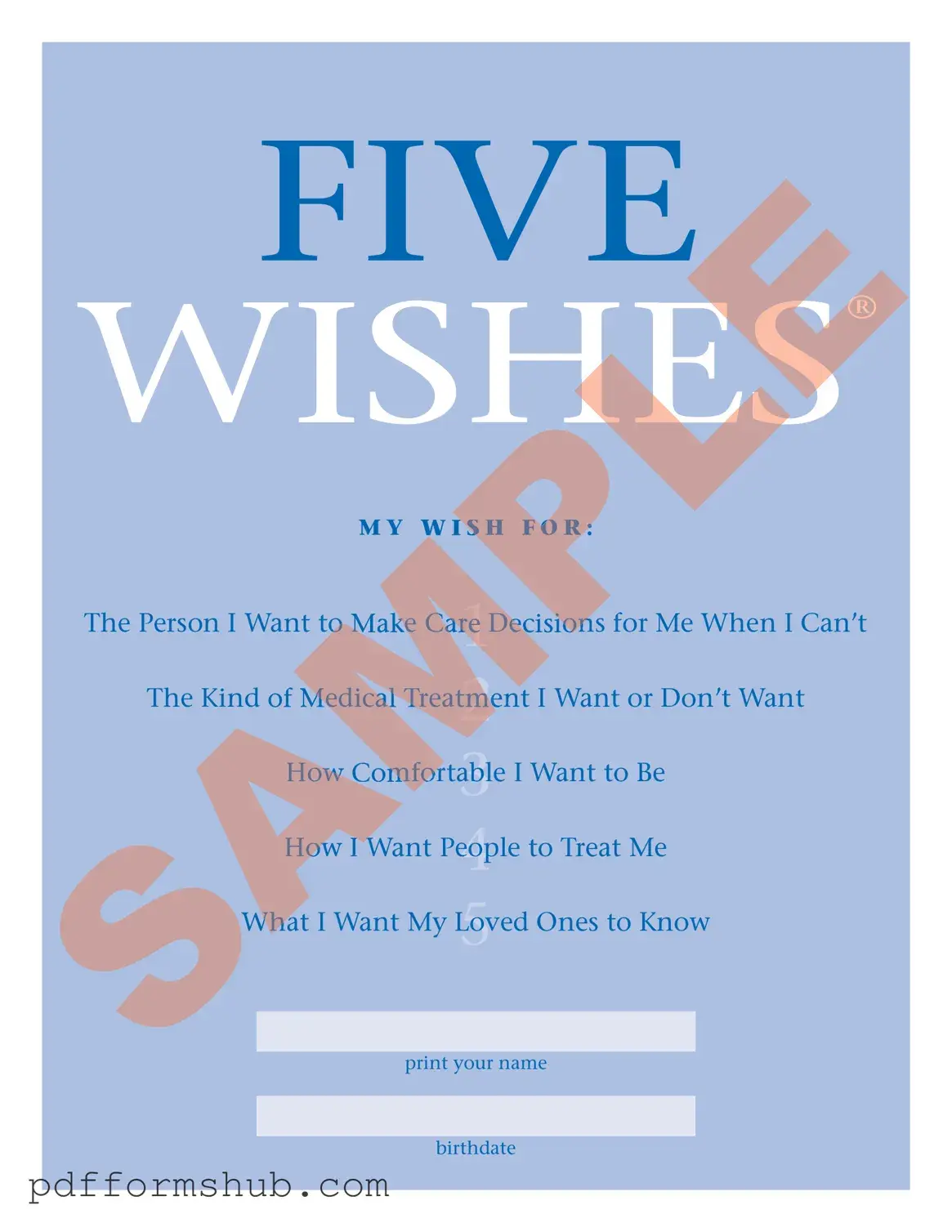Fill in Your 5 Wishes Document Form
The Five Wishes Document is a legal form that allows individuals to express their personal, emotional, and spiritual needs regarding medical care. It empowers you to designate someone to make health care decisions on your behalf if you are unable to do so. By completing this straightforward form, you can ensure your wishes are known and respected during critical times.
Take control of your health care decisions by filling out the Five Wishes form. Click the button below to get started.
Customize Form

Fill in Your 5 Wishes Document Form
Customize Form

Customize Form
or
Free PDF Form
Short deadline? Complete this form now
Complete 5 Wishes Document online without printing hassles.